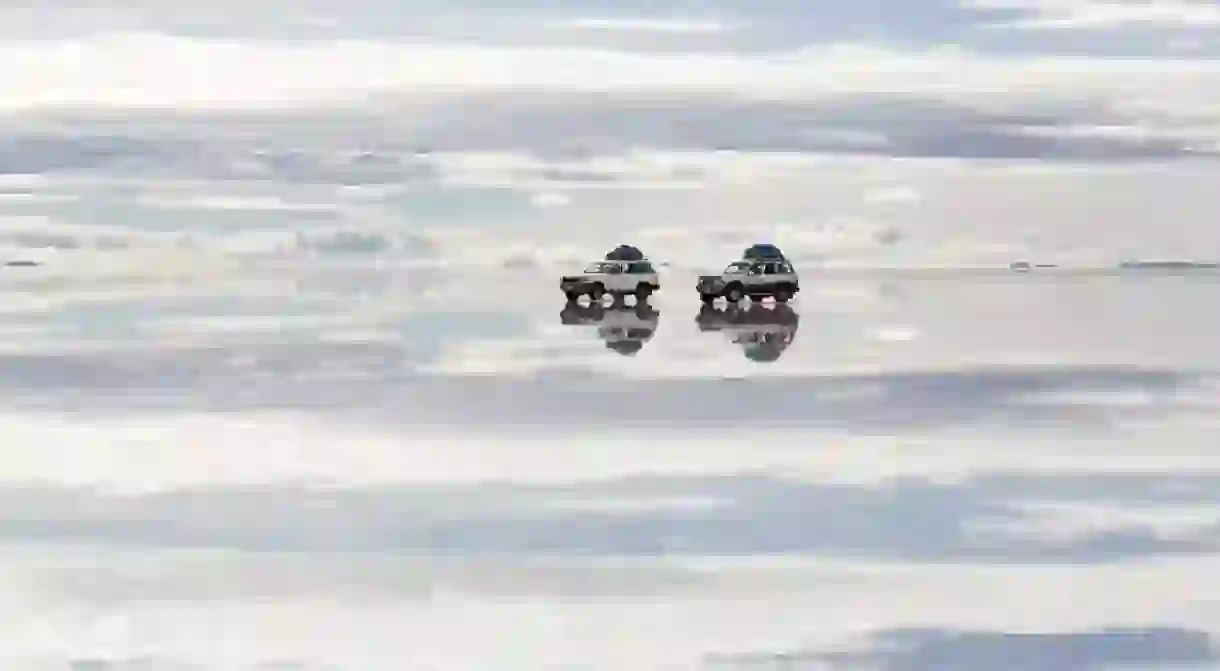10 Things to Know Before Visiting the Salar de Uyuni, Bolivia

More than just a blindingly white expanse, the alien landscapes of Bolivia’s Salar de Uyuni and its surreal surrounding deserts have become a rightful highlight of the South American gringo trail. Yet visiting these remote lands can be something of a challenge, not least for the nausea-inducing altitude and extreme isolation involved. Here are 10 things you need to know before checking out the region for yourself.
The altitude is extreme
The salt flats themselves lie at 11,800 feet (3,600 meters), while some sections of the extended three-day tour reach almost to 16,400 feet (5,000 meters) which can spell disaster for unacclimatized travelers. With that in mind, spend a few days in a high-altitude destination such as La Paz immediately beforehand and consider taking Diamox and mate de coca to mitigate the effects of the altitude.

It gets bitterly cold
Travelers arriving in winter can expect nighttime temperatures to drop as low as -4F (-20C). To avoid freezing to death, bring plenty of warm clothes to wear inside your sleeping bag.

One-day tours are totally doable…
Travelers with time constraints might consider opting for a brief one-day tour. Leaving Uyuni daily at 10 a.m., these tours spend several hours traversing the salt flats before returning in the late afternoon.

… but it’s best to opt for a three-day trip
A three-day foray through the region’s astonishing volcano-strewn landscapes is the best way to go. It may be a tough and bumpy ride, but those technicolor lagoons, gushing hot springs and surreal deserts make it all worthwhile.

Accommodation is super-basic
All standard tours see travelers staying in basic local shelters, which are little more than bare-brick shared dormitories with limited electricity and running water.

There are some nice hotels
Well-heeled travelers should opt for the Tayka hotels, a series of opulent ecolodges, each with a unique natural theme. The ultra-wealthy might want to check out Blink in Bolivia for a novel bespoke experience.
Not all tour companies are created equal
You get what you pay for in Uyuni, with cheaper tour companies running clapped-out, breakdown-prone jeeps and serving up small portions of substandard food. It’s usually worth paying those few extra Bolivianos to ensure your tour goes off without a hitch.

Drunk drivers are disturbingly common
Sadly, alcoholism is rampant in rural Bolivia and tour operators appear helpless to control the drinking habits of their freelance contractors. For your own safety, check to see if the bloke behind the wheel looks like he’s had a few.

Tupiza is a viable alternative
Rather than embarking in Uyuni, considering starting in Tupiza, where the tour operators are notably better. Aside from an extra day through rugged backcountry terrain, tours from Tupiza arrive at the main sites at different times, meaning travelers can experience the highlights in blissful isolation.

The mirror effect is incredible
The salar’s famed mirror effect occurs only after heavy rains, so arrive during the wet season (between January and March) for a chance to glimpse this incredible phenomenon.
Now that you are well versed in what to expect, all that’s left to do is kick back in your jeep and watch in awe as you drive through some of the world’s most spectacular terrain.












